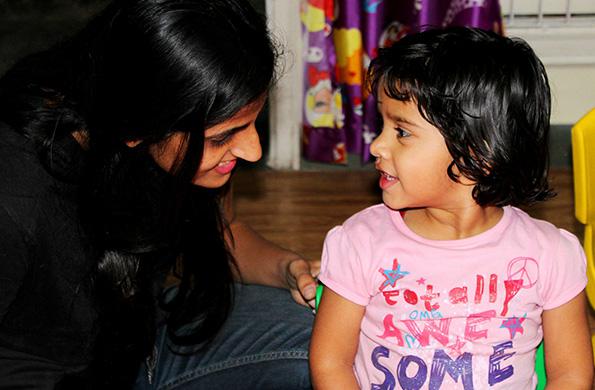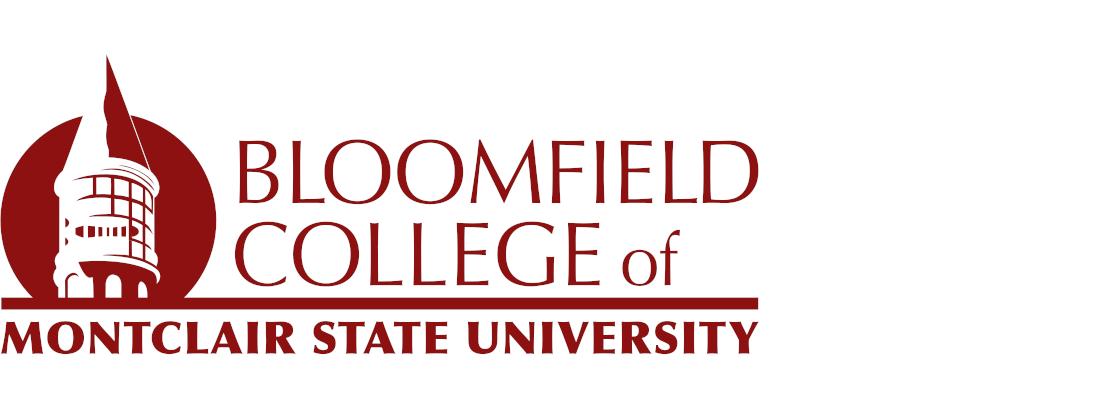Master of Arts in Early Childhood Education
-
OVERVIEW
-
REQUIREMENTS
-
FAST FACTS
-
FACULTY & STAFF
-
RESOURCES
-
CLINICAL PRACTICE

Master of Arts in Early Childhood Education Overview
Bloomfield’s Master of Arts in Early Childhood Education is designed to advance the teaching skills and knowledge of those dedicated to working in early childhood education.
The Masters of Arts in Early Childhood Education allows candidates who already possess a CEAS or standard teaching certificate to earn a teaching endorsement in early childhood education by following a core sequence of courses (5.5 CUs = 22 credits). This core sequence of courses fulfills the New Jersey Department of Education requirements for the early childhood endorsement.
The Masters of Arts in Early Childhood Education provides candidates who seek to earn an initial certification in early childhood education to do so by following a core sequence of courses (10.25 CUs = 41 credits). This core sequence of courses (10.25 = 41 credits) fulfills the New Jersey Department of Education requirements for early childhood education initial certification.
Please review the required coursework and the Curriculum Policy Statement
For Students Enrolled in the Bloomfield College Master of Arts in Special Education and Master of Arts in Early Childhood Education Degree Programs:
Courses at the 500 level and above are designated as graduate courses at Bloomfield College. Beginning master's courses are at the 500 level; advanced master's courses are at the 600 level. Some undergraduate level courses in the Education Division are also approved for graduate credit by the College. Such courses count toward the master’s degree only if taken after a student has earned a Bachelor of Arts or Bachelor of Science degree and only when taken as part of the Bloomfield College Graduate Certificate Program.
The Graduate Certificate courses were designed as graduate courses. The Post-Baccalaureate program was formally elevated to a graduate certificate and courses renumbered as 500-level courses to recognize this fact and to avoid any confusion. The course content of the graduate level Post-Baccalaureate courses is very similar to that of the former Post-Baccalaureate courses. Therefore, we accept the credits of the previous Post-Baccalaureate program for the new graduate programs for Bloomfield College alumni. We cannot ethically require a student to take the same courses twice nor pay additional tuition for doing so. However, it is also important to note that each school district has its own discretion to accept those credits as graduate credits.
What you'll study
Advanced courses in childhood development, early childhood curriculum design, and instructional practices appropriate for preschool through grade 3, as well as leadership and administration courses.

Admission requirements
- A bachelor’s degree with 60 or more credits in the liberal arts or sciences with a cumulative grade point average of 3.0 or higher (official transcripts from all higher education institutions attended must be provided)
- Two professional letters of recommendation from supervisors, teachers and/or co-workers
- A personal statement describing your philosophy of education and reasons for applying to this graduate program at Bloomfield College (250 – 500 words)
- Your professional resume/curriculum vitae
- A list of any current New Jersey teacher certification(s), including certification in special education
- For applicants whose native language is not English, minimum scores on the Test of English as a Foreign Language (TOEFL)of 550 for the paper-based test and 213 for the computer-based test, or completion of APIEL level #3
- In some cases, an interview may be required

Fast Facts
- There is an expected increase in industry jobs (source: bls.gov)
- The skills you’ll gain will allow you to teach in a variety of settings
- This degree is recognized by the New Jersey Department of Education
- This program is accredited through MSA CHE and CAEP

Contact Information

Resources
Praxis I Core Academic Skills Resources:
ETS Resources:
Prepare for a Praxis Test: Strategy and Tips
Praxis 1 Core Academic Skills for Educators: Reading (5712)
Praxis 1 Core Academic Skills for Educators: Writing (5722)
Praxis 1 Core Academic Skills for Educators: Mathematics (5732)
■ Khan Academy videos and exercises (PDF) — The Praxis Program has identified videos and exercises available at www.khanacademy.org to support test preparation for the Praxis Core Academic Skills for Educators: Mathematics assessment. Each topic that the test covers is mapped to a video or exercise that may help you prepare to answer questions related to that topic.
Other Free Praxis 1 Study Websites:
Praxis Core Academic Skills for Educators: Ultimate Guide
Study Guide Zone
4Test Free Practice Tests
Teachers Test Prep
Study.com
Mometrix Test Preparation
Test Guide
Practice Quiz
Apps
The app is free to download, but there are in-app purchases to upgrade your study materials. The free version includes 74 practice questions with answer explanations. It is available for both Apple and Android devices.
Praxis Test Prep from Study.com
This free app is available for Apple and Android devices. Watch short, engaging video lessons created by our subject matter experts to help you learn even the most difficult concepts. Take quizzes and practice tests, created to match the exam content, to help you master the material on the Praxis you need.
Magoosh Praxis Core Flashcards
This free app is available for Apple and Android devices will help you study for the Praxis Reading, Writing and Math by teaching you key concepts with flashcards
Clinical Practice and Experience
Clinical placement application overview
Students who have met the requirements to be admitted into the Education Department will also be required to complete a variety of clinical experiences. The classroom field observations are an integral part of the teacher preparation program. This provides the student with the opportunity to experience effective instruction by observing different teaching styles in diverse environments. Students will be responsible for securing their own placement for some observation requirements; the Coordinator of Clinical Experience and Practice will coordinate other field hours. Clinical experience culminates in the students’ final two semesters as they complete their clinical internship (student teaching).
- A current Mantoux test (Tuberculosis (PPD) Screening) is required for anyone working with students in schools.
It is strongly recommended:
- Students complete a Criminal History Review (fingerprinting) through the New Jersey Department of Education.
Courses requiring field placement observation hours
For admission into an educator preparation program (EDC 330), students must pass (or be exempt from) the Core Academic Skills for Educators Praxis exam #5751 (consisting of three subtests, 5712, Reading; 5722, Writing; 5732, Math). See Praxis Resources.
|
Code |
Course |
Hours |
|---|---|---|
|
EDC 202 |
Teaching as a Profession |
10 |
|
EDC 217 |
Family and Community |
5 |
|
EDC 314 |
The Development of the Adolescent and Pre-Adolescent |
10 |
|
EDC 316 |
Childhood Development and Learning |
10 |
|
EDC 330 |
Introduction to Curriculum Design I |
15 |
|
EDC 332 |
Introduction to Curriculum Design II |
20 |
|
EDC 318 |
Early Childhood Curriculum and Assessment |
20 |
|
EDC 336 |
Introduction to Educational Technology |
10 |
|
EDC 320 |
Educating the Child with Disabilities in the Regular Classroom |
15 |
|
EDC 334 |
Instructional Design and Analysis of Classroom Assessment |
10 |
|
EDC 342 |
Early Childhood Environments and Assessments |
10 |
|
EDC 321 |
Developing Literacy Across the Grades |
20 |
|
EDC 410 |
Clinical Practice I |
120 |
|
EDC 412 |
Clinical Practice II |
360 |
Clinical Intern (Student Teaching) requirements
The clinical intern experience is designed so the student, when possible, spends two consecutive semesters with the same class and cooperating teacher. During the first semester the clinical intern will observe a minimum of 120 hours in the classroom and teach four lessons that will be observed by a college supervisor and three by the cooperating teacher. The clinical intern will spend the second semester entirely in the classroom gradually taking over all the instructional responsibilities. The intern will be observed six times by the college supervisor and four times by the cooperating teacher. The clinical interns will also participate in the Clinical I and II Seminars one evening per week where they will reflect on their experience and prepare their final portfolio. No other courses can be taken during the final semester of student teaching without the approval of the Coordinator of the Education Department.

